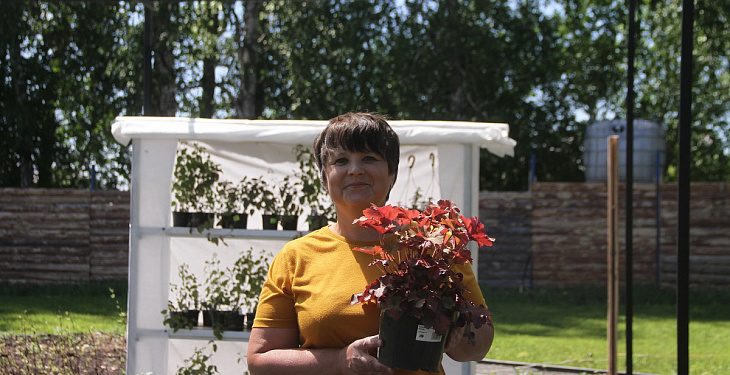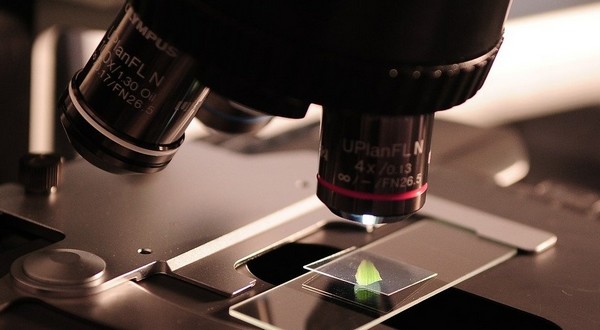Spring for Irina Bagaeva begins in February, when she starts the first planting of flowers. By March, the greenhouse is immersed in greenery, today they are already full of buds and decorate the city flower beds and home gardens of Barnaul residents. In an interview, she told how to turn her favorite business into a business and how state support helped her.
For most of her life, Irina Bagaeva worked at OJSC Altaienergosbyt. I was always friends with numbers, and after the birth of my son, I suddenly wanted to decorate my ordered world with flowers. It turned out that the earth obeys her hands, the first seeds planted by her sprouted. For three years she led a flower garden in the yard, but the dream of her own garden was realized only with the move to a country house.
“While floriculture was a hobby, I constantly faced questions about where to buy seeds and seedlings, which ones to choose, how they will overwinter, which plants are best planted in the shade, which ones on the sunny side,” says Irina. — I could not find the right varieties in the flower markets. Orders through the online store were not always successful: the plants often arrived in a deplorable state, it happened that they did not match the variety and even the species. And it became clear at best only during the season, and at worst – the next, and even after several seasons. In addition, many of the varieties I liked were new, and there was little information on them, they simply did not survive our harsh winter. I had to understand all the intricacies, and I thought that all amateur flower growers face the same questions, and you can build your own business on this.
From her salary, she bought seeds of petunias, marigolds, annuals for 10,000 rubles, and cassettes for seedlings for 5,000 rubles. At first I grew them in the kitchen, then moved them to the veranda. But it turned out that the environment there was not comfortable enough for them, and the Bagaev family urgently started building a greenhouse. According to Irina, in addition to her love for flowers, the technical knowledge of her husband Yuri helps her a lot.
– The first costs amounted to about 30 thousand rubles, and the seedlings were sold for 100 thousand rubles, – the entrepreneur notes. — For eight years it was the biggest profitability. When you start to expand, expenses increase, the revenue side decreases.
Secret of success
At first, seedlings were sold from the car, near shops and in the market. A large volume was bought by TOSs, they, as a rule, pay much attention to decorating the adjoining territories. The activists advised the novice entrepreneur, working in the status of private household plots, to issue an IP, which would allow her to sell products to organizations. Irina opened her own small business, learned the basics of entrepreneurship at the Employment Center, where she also received a starting 58 thousand rubles for the construction of a greenhouse.
“The next year we bought the first wholesale batch of herbaceous and bulbous perennials,” continues Irina Bagaeva. – But it is not enough to grow flowers, you still need to sell them. My family and I began to travel around the regions with our products. This, even taking into account logistics, turned out to be more cost-effective. The villages do not have such a large number of flower shops as in Barnaul, but there is a lot of land, local residents are buying up our products well. However, in terms of dimensions, our vehicle was not suitable for transporting a large volume of products. In 2019, I received a preferential loan from the Altai Entrepreneurship Finance Fund at 6% to buy a car with a larger capacity. Now the business has become more mobile, it accommodates not only seedlings, but also seedlings of shrubs, conifers, which we turned to growing five years ago. I started cuttings as an experiment – it turned out. But this is too labor-intensive, so I found a supplier of rooted cuttings, we grow them on the site for two years before selling them. By the way, in 2021, we managed to get another soft loan at 2% for the purchase of planting material.
Gradually, the whole family got involved in Irina’s business project, and even in the high season she manages to do without hired workers. And they grow more than 300 varieties of flowers. Last fall, she switched to a tax on professional income, now she works as a self-employed person. It fits all the criteria – the annual income does not exceed 2.4 million rubles, it does not use hired employees, and the tax is stronger: 4% when receiving income from individuals, and 6% – from legal entities. At the same time, it allows you to work with companies, carry out wholesale deliveries by organizations. And this, according to the entrepreneur, even taking into account the lower price, is more profitable than trading on a rented site or on the market.
In addition, state support instruments also apply to the self-employed, including soft loans from the Altai Fund for Entrepreneurship Financing. During the period of the loan product, 32 self-employed and individual entrepreneurs who apply the professional income tax received loans at 6.33%.










